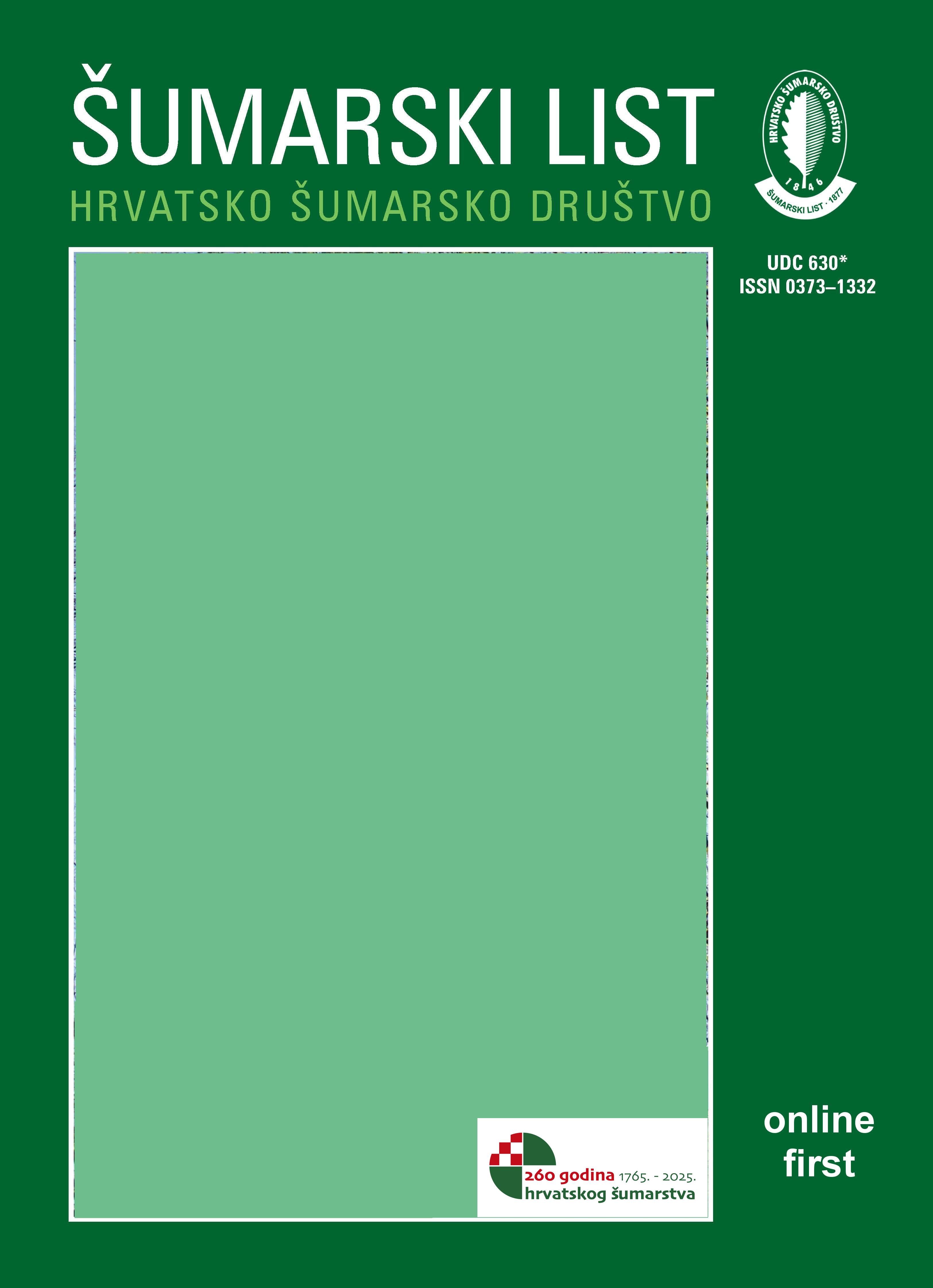Ticks as vectors of zoonotic pathogens: public health aspects in the Istria county
Keywords:
Istria County, public health, ticks, Lyme disease, zoonosesAbstract
Monitoring the presence of vectors of infectious diseases is of critical importance for public health protection and it further emphasizes the necessity of an interdisciplinary approach within the “One Health” concept. This study is based on field research of ticks as vectors of zoonotic pathogens and the analysis of tick-borne disease incidence in Istria County, Croatia. According to data from the Croatian Institute of Public Health for the period 2016–2022, a total of 126 cases of zoonotic diseases were reported, of which 114 (93.4%) were cases of Lyme borreliosis, two were cases of Q fever, and one case each of rickettsiosis and haemorrhagic fever with renal syndrome. Eight reported cases of zoonoses were recorded in non-residents of Istria County. As part of this research, systematic sampling of hard ticks (Acari: Ixodidae) was conducted from 2020 to 2023 using the flagging method and collection from the host, yielding a total of 2349 specimens belonging to 12 different species from the genera Ixodes, Dermacentor, Hyalomma, Haemaphysalis, and Rhipicephalus, along with one soft tick from the genus Argas. The dominant species was the sheep tick (Ixodes ricinus L.), accounting for 70.84% of the total sample. This species is a known vector of Borrelia burgdorferi sensu lato (the causative agent of Lyme borreliosis) and Coxiella burnetii (the causative agent of Q fever).
The results indicate a notable presence and wide distribution of vectors responsible for the transmission of Lyme borreliosis, confirmed as the most prevalent zoonosis in the region. The obtained data support the need for continuous entomological surveillance and epidemiological monitoring of vector-borne diseases to enable more accurate risk assessment and the development of appropriate public health measures.
Downloads
Published
License
Copyright (c) 2025 Maja Cvek, Marko Vucelja, Darja Puškadija, Danijela Poljuha, Dalibor Broznić, Emina Pustijanac, Marina Šantić, Dijana Tomić Linšak

This work is licensed under a Creative Commons Attribution-NonCommercial 4.0 International License.


